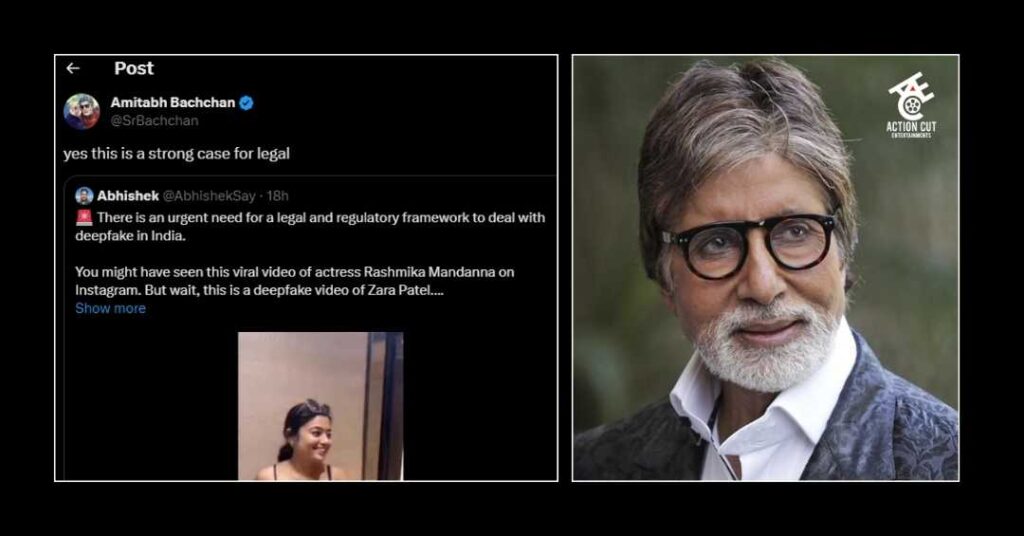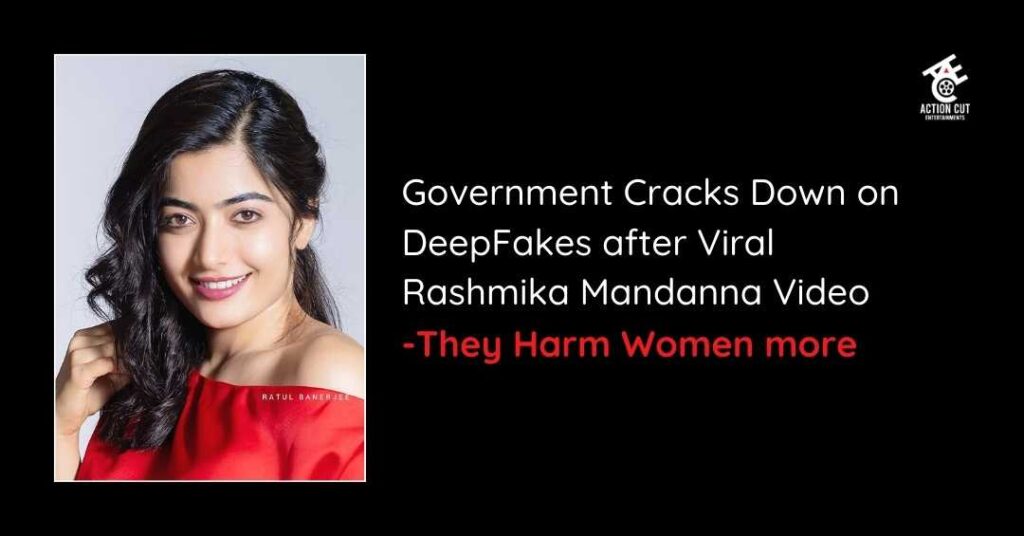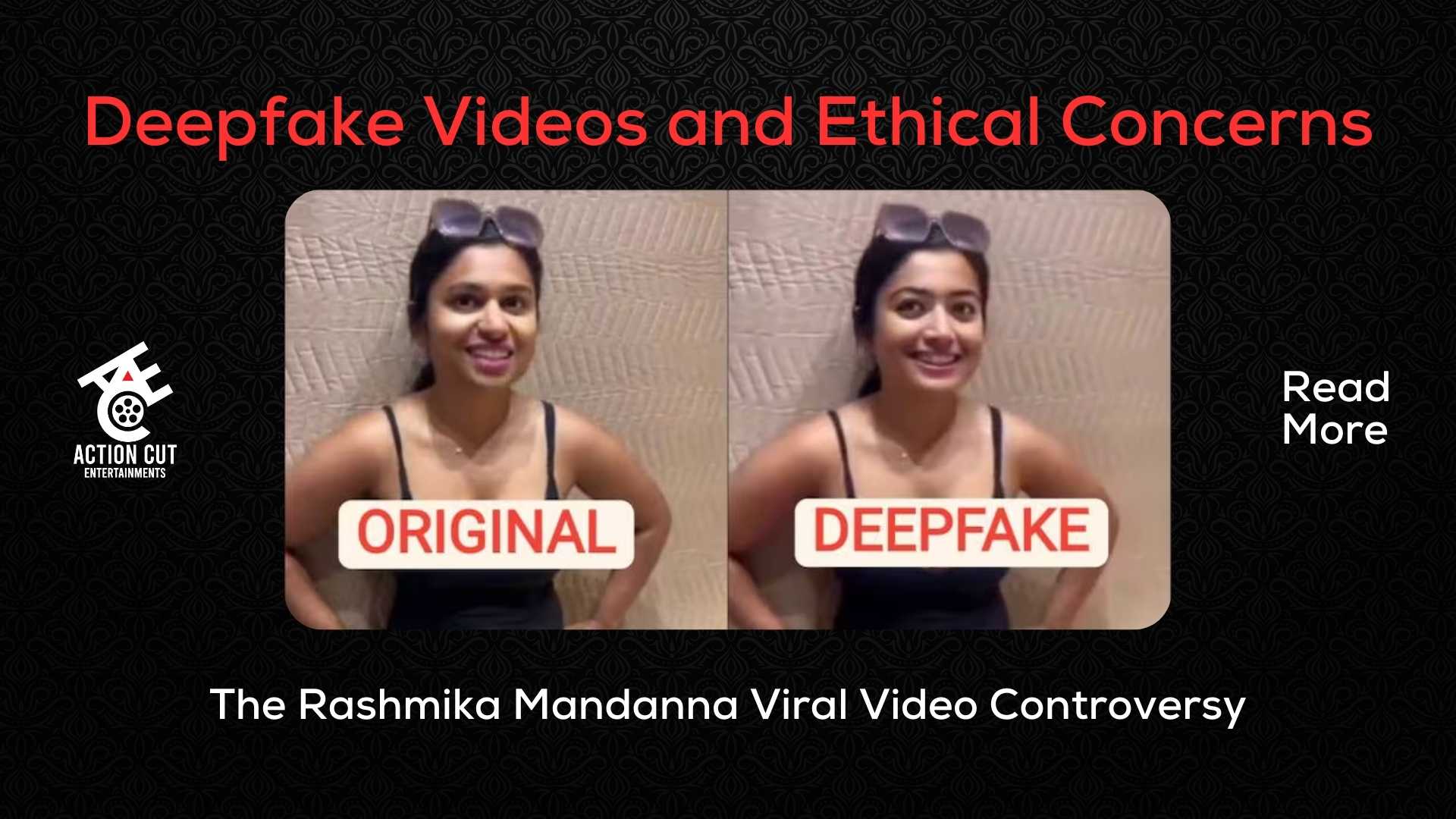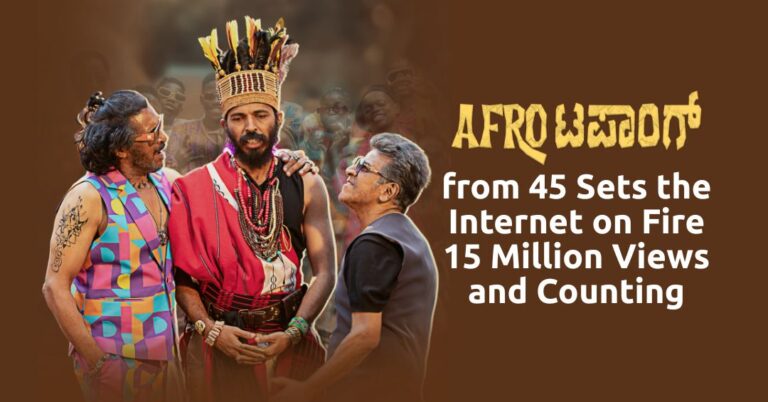The rise of deepfake technology has brought forth a plethora of ethical concerns, particularly in the realm of media and entertainment. These concerns are vividly exemplified by the recent Rashmika Mandanna viral video, which has sparked outrage across India and underscored the potential dangers of this technology.
What are Deepfake videos?
A deepfake video is a type of digitally manipulated video in which artificial intelligence and deep learning techniques are used to create a realistic-looking video that appears to feature real people saying or doing things they never actually did.
Ethical Issues with Deepfake Videos
The Rashmika Mandanna viral video controversy highlights several pressing ethical issues associated with deepfake videos:
Privacy Invasion
Deepfake videos can easily compromise an individual’s privacy. In this case, Rashmika Mandanna’s likeness was used without her consent to create misleading and damaging content, infringing upon her personal and professional life.

Defamation and Misinformation
Deepfake videos can be used to spread false and damaging information. Such content can harm a person’s reputation, leading to real-world consequences. In the case of Rashmika Mandanna, the video aimed to tarnish her image and could have far-reaching implications.
Consent and Control
The creation of deepfake content often occurs without the knowledge or consent of the individuals involved. This lack of control over one’s own image raises significant ethical concerns, as it undermines an individual’s ability to protect their own identity and reputation.
Impact on Society
Deepfake videos can have a profound impact on society by perpetuating deception and manipulation. They erode trust and the ability to discern real from fake, making it challenging to distinguish truth from fiction in an increasingly digital world.
Outrage and Consequences
The Rashmika Mandanna viral video triggered widespread outrage in India, leading to demands for stricter regulations and penalties against those who create and circulate such content. This incident has also brought the issue of deepfake technology into the spotlight, prompting discussions on the urgent need for better safeguards against its misuse.

Conclusion
The Rashmika Mandanna viral video serves as a stark reminder of the ethical challenges posed by deepfake technology. As technology continues to advance, society must address these concerns by enacting stronger regulations, developing better detection methods, and educating the public on the potential dangers of deepfake videos. In doing so, we can better protect the privacy, reputation, and security of individuals while preserving trust and integrity in the digital age.




